
Jack Tupper Receives the 2025 Robert N. Allsopp Urban Design Fellowship
Biography
Jack Tupper is an English landscape architect and photographer based in the lands now known as Vancouver, who’s work focuses on the ecological remediation of landscapes within urban and peri-urban contexts. He is a Senior Landscape Architect with the Vancouver Park Board and an Adjunct Lecturer in Ecological Planting Design at the University of BC. In addition, he operates his own design studio, undertaking research projects, residential work, and developer-led initiatives across British Columbia.
Jack completed his undergraduate studies in Landscape Architecture, at Leeds Beckett University and RMIT Melbourne, where he focused on temporal urban parklands, agricultural systems, and accessible design for the sensory impaired. After working in Vancouver and Switzerland, he returned to Leeds Beckett University to complete a master’s degree in Landscape Architecture. During these graduate studies, Jack participated as a Visiting International Research Student at UBC Vancouver, under the mentorship of Patrick Mooney, MLA, PhD. This research examined the remediation and decolonization of Metro Vancouver’s landscapes and formed the foundation of what has since become the Park Board’s meadows initiative.
Project: Wilding our Cities
In the context of the climate crisis and ongoing processes of reconciliation, the remediation and preservation of native ecologies have become pressing imperatives. Landscape architects are uniquely positioned to contribute to this effort by applying disciplinary knowledge within the urban realm. The processes of decolonization and ecological remediation are inextricably linked, presenting a critical opportunity to re-evaluate the governance and management of public urban parks. This study aims to interrogate and propose structural shifts away from Eurocentric paradigms of park design and management, with the objective of enhancing regional ecological integrity while contributing to the decolonization of public park infrastructure.
Building upon the foundational research of K. Zalite (2024), which examined ecological remediation primarily through the lens of planting design, this project seeks to extend the inquiry to the municipal scale. Specifically, it considers the management strategies employed by municipal operations teams and their potential to generate significant ecological and cultural benefits. By reframing urban park management as a site of both ecological intervention and cultural negotiation, this study positions public parks as critical instruments for advancing reconciliation and fostering long-term urban resilience.
Portfolio
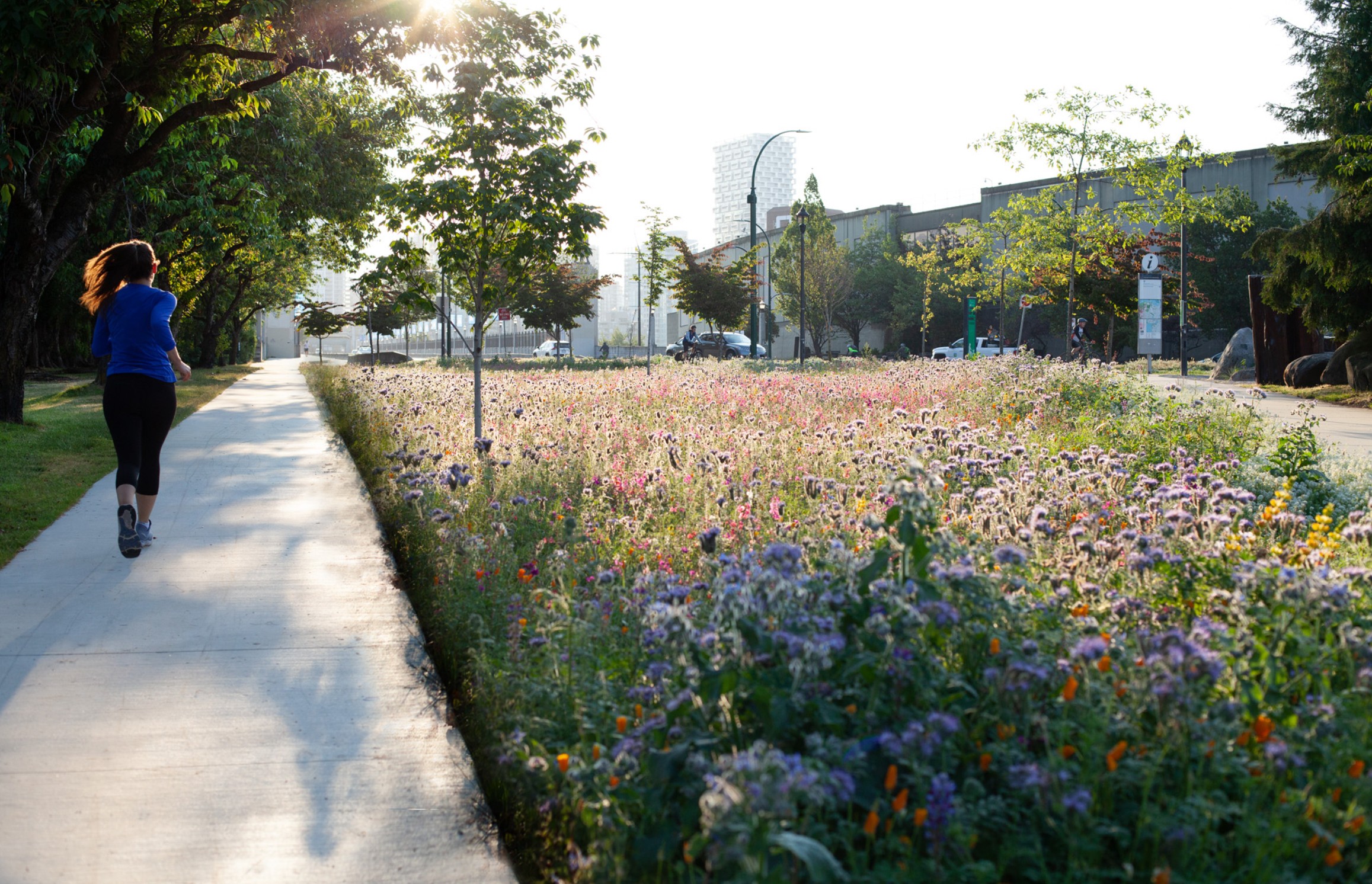
Image 1: Vancouver Meadows
Following preliminary research curated during Jack’s master's degree (2015), over the last five years, the City of Vancouver and Vancouver Park Board have converted 7% of the city's total lawn space to ecologically beneficial meadow and grassland.
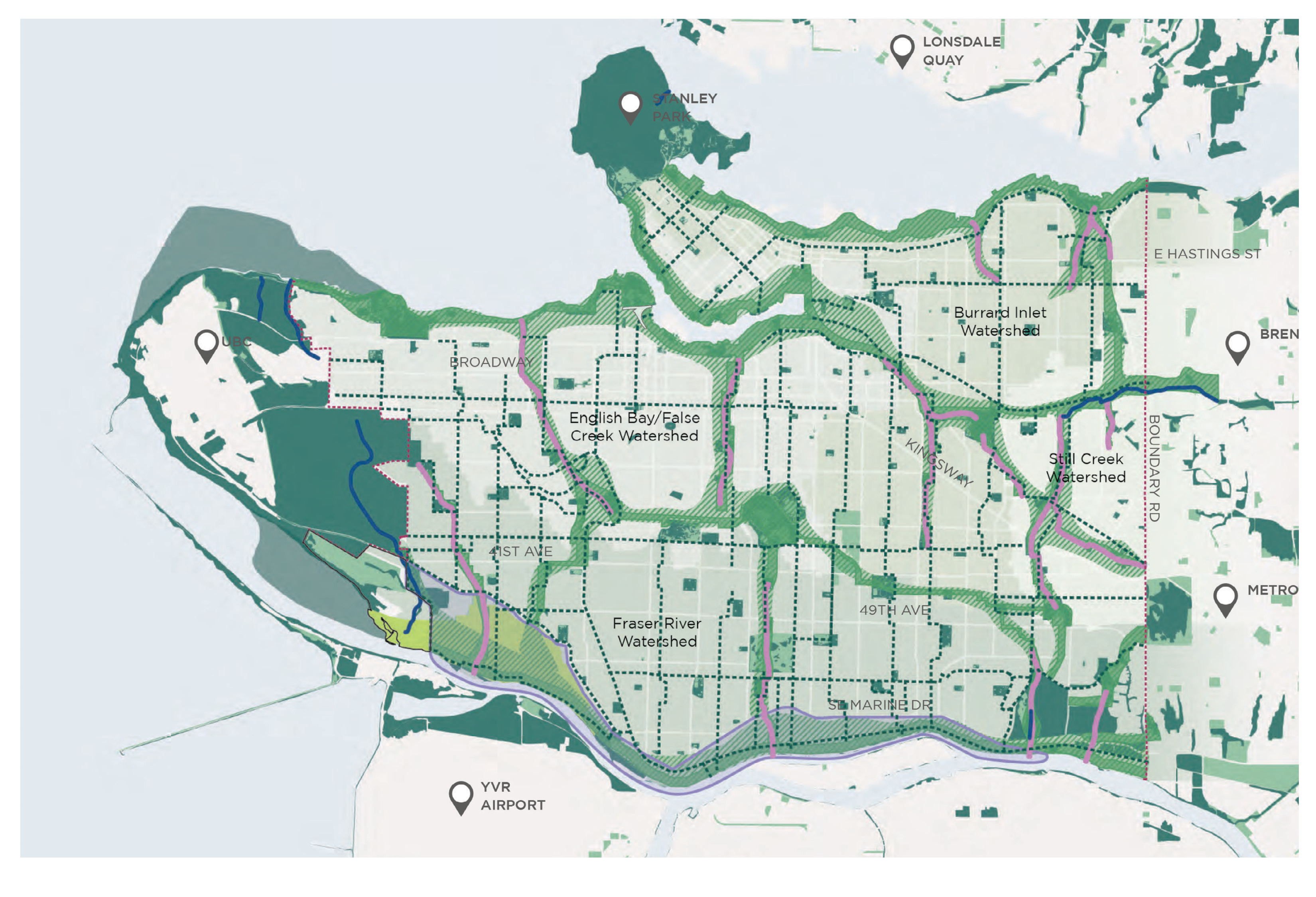
Image 2: Vancouver Meadows Continued
These 42 hectares of new meadows are the first steps in creating biodiversity corridors through the city.
Project Manager for the Vancouver Park Board (2015-current)
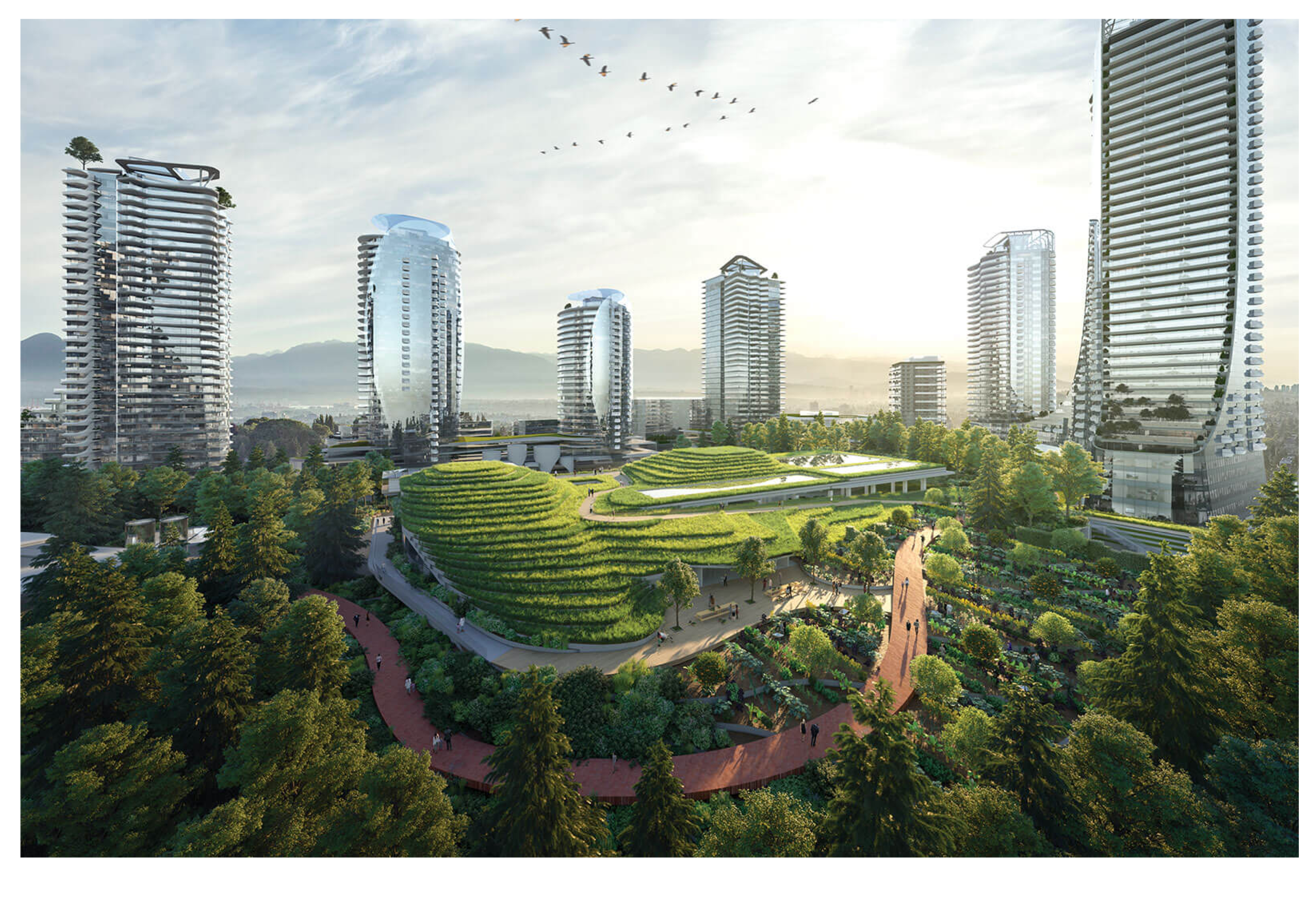
Image 3: Oakridge Mall Park
The new public park at Oakridge Mall is a foundational new approach to urban public space within Vancouver. A nine-acre park will sit upon and adjacent to the redeveloped mall, currently in construction, providing a significant boost to access to green space for this community.
Project Manager, Vancouver Park Board (2020-current)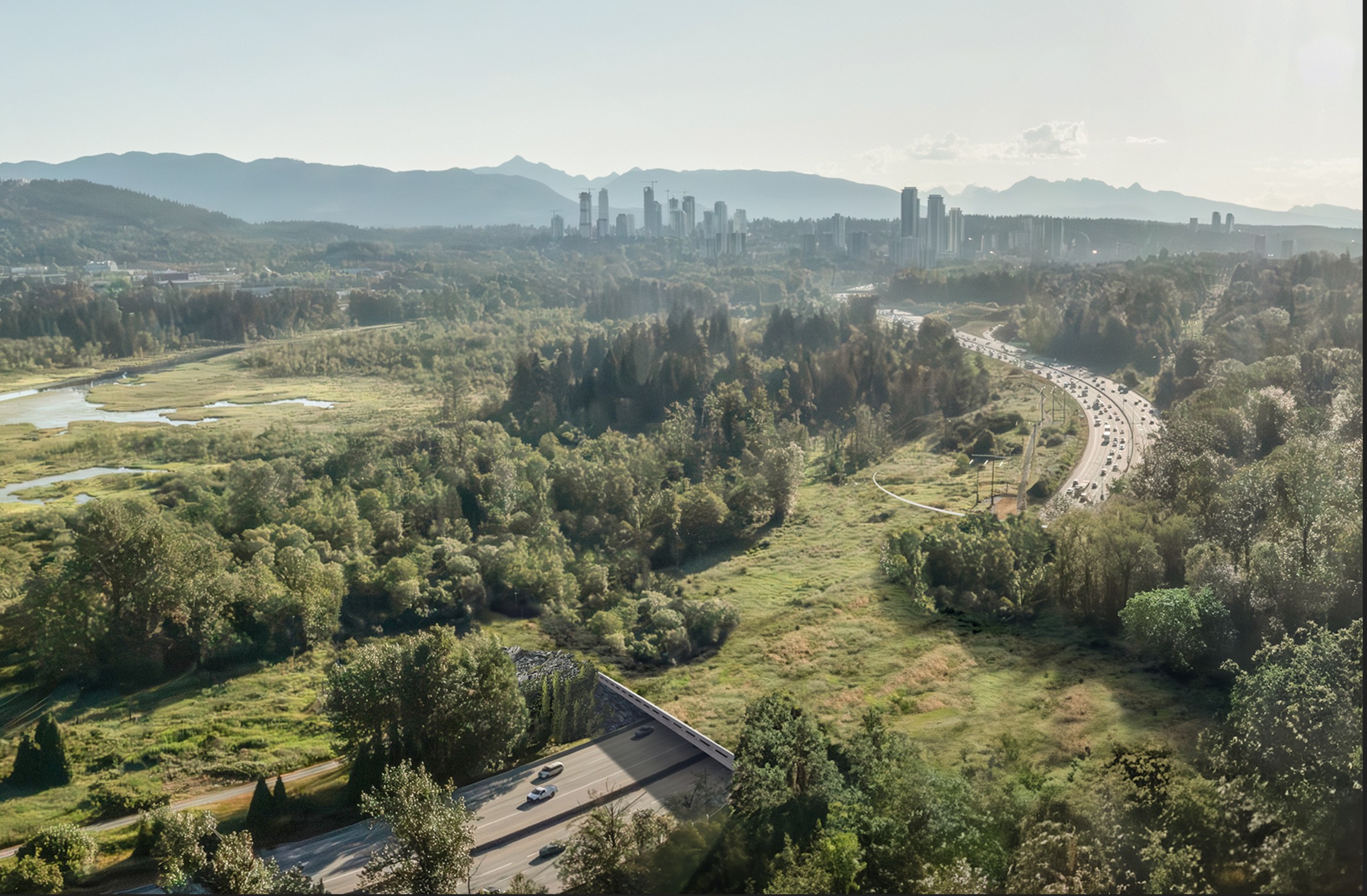 Image 4: Burnaby Connector
Image 4: Burnaby Connector
Currently bisected by Highway 1, Burnaby Connector was a concept plan developed with Burnaby Parks and Recreation, and Transport Canada to pursue avenues of reconnecting the city’s north and south divide.
Project Manager, Burnaby Parks & Recreation (2019).
Project Manager: Jack Tupper Studio (Current)
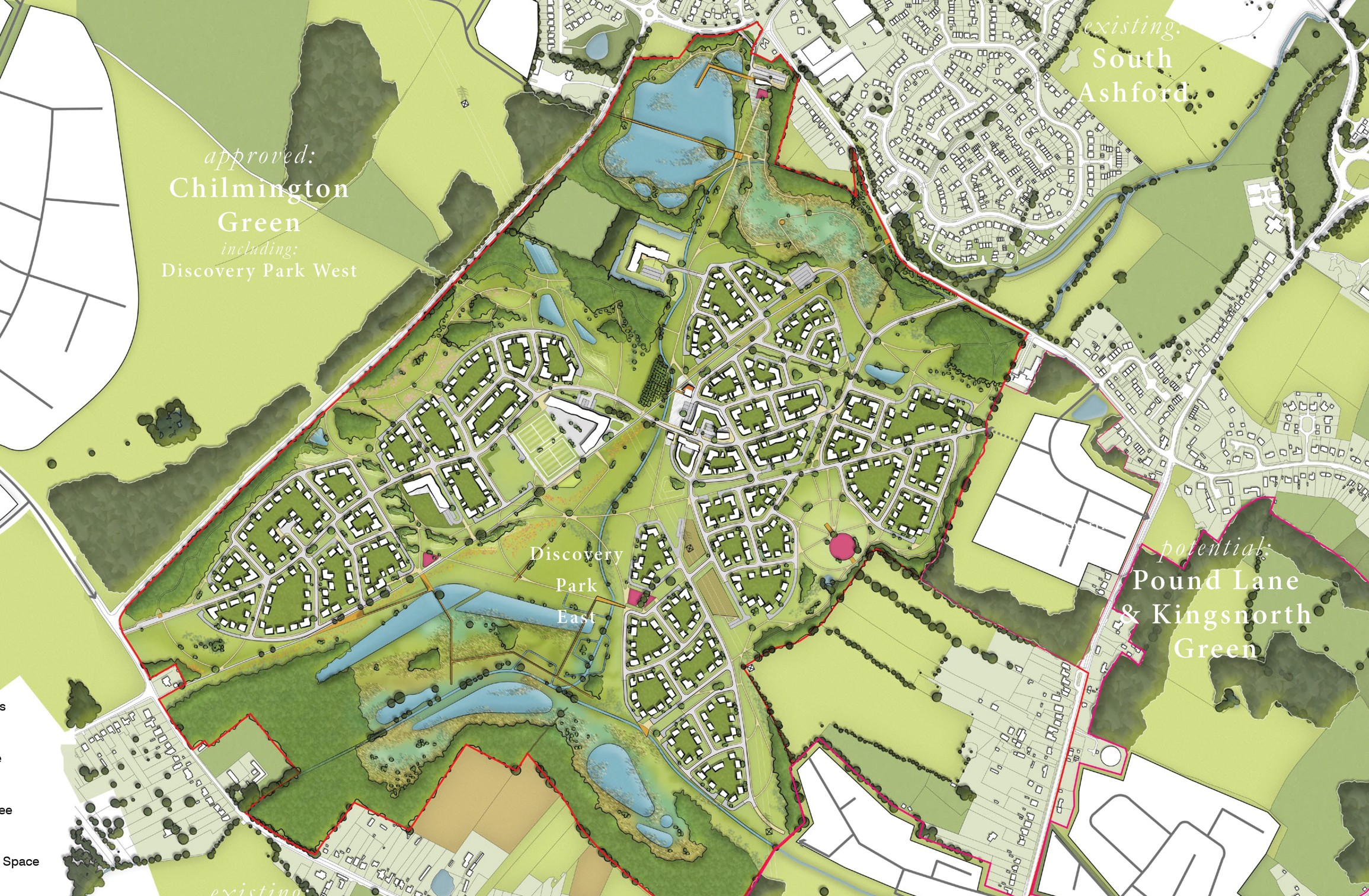
Image 5: Court Lodge
Court Lodge is a sustainable neighbourhood currently in development (Kent, England). The 1,000-home development prioritizes existing ecological and historically significant remnants with the need for new homes.
Landscape Architect, Urban Wilderness (2016-2017)
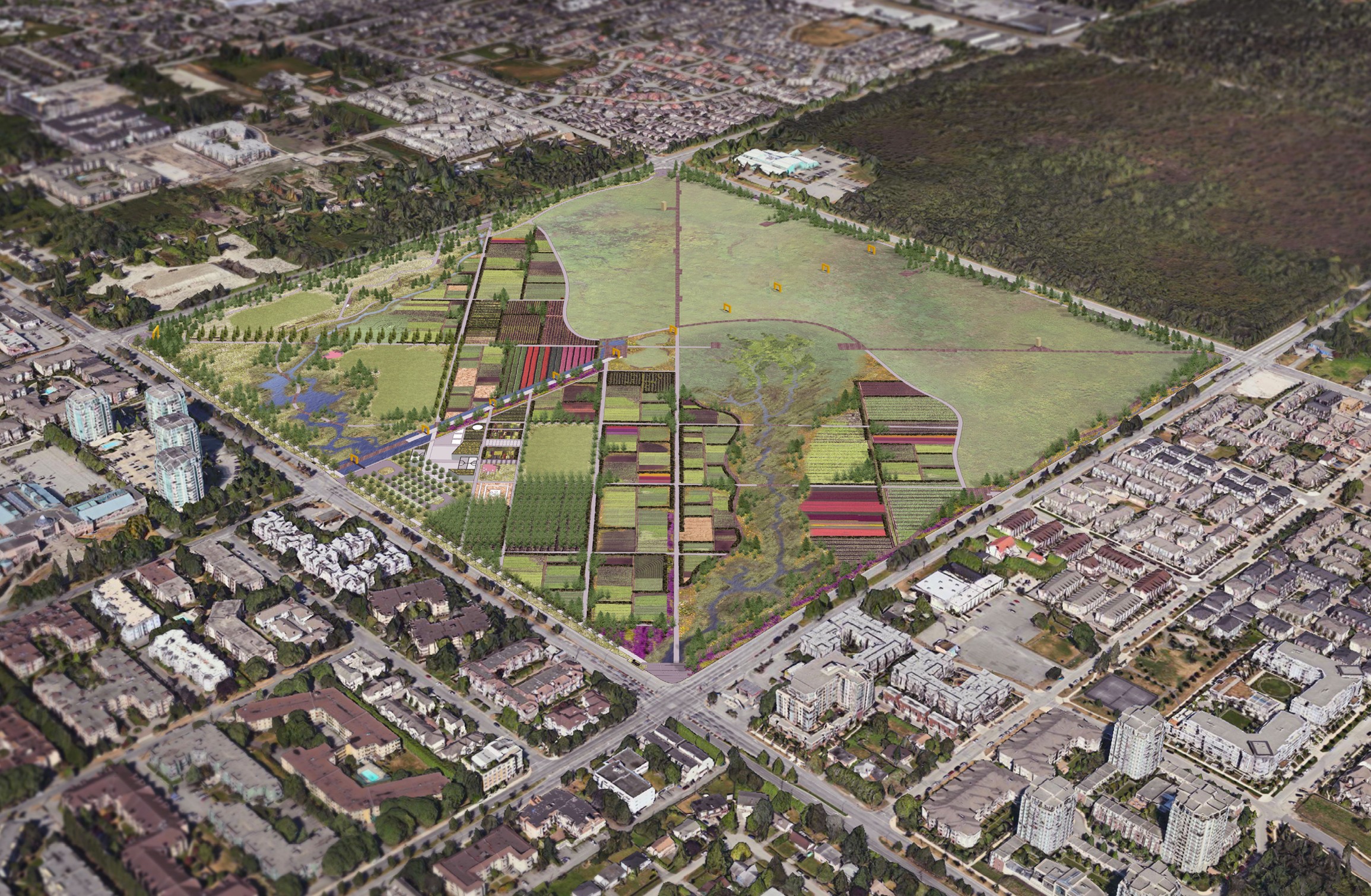
Image 6: Garden City Lands
Garden City Lands is a significant new approach to urban agriculture and ecological restoration, with a vast fragment of ALR projecting into the city of Richmond, BC. Valuable sphagnum moss ecologies were preserved and expanded while introducing small scale ecological farming and education to the city.
Landscape Designer, PWL Partnership. City of Richmond, BC (2012-2014)
